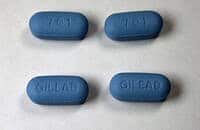MedicalResearch.com Interview with:
Nathan Warren is a Ph.D.
candidate in marketing at the University of Oregon. His research examines how people respond when social norms, such as masculinity norms, are disrupted by social change. He hopes that his research can empower people who are struggling to adapt to changing norms to live healthier, happier, and more productive lives. For more information on his research, please visit: www.nathanwarrenresearch.com
Dr. Troy Campbell is a behavioral scientist (PhD, Duke University), former marketing professor (University of Oregon), former art, film, and psychology scholar (UC Irvine), professional designer and researcher (Netflix Insights, Disney Imagineering, UnitedHealth) and currently chief scientist at On Your Feet. Troy believes everything can be awesome when you start with the right science and follow with the right creative process, and he hopes his professional services or public guides can help his clients make something awesome and impactful. For more information on Troy Campbell, please visit: www.troy-campbell.com
MedicalResearch.com: What is the background for this study? What are the main findings?
Response: In the United States, the average American sleeps less than the minimum seven hours of sleep per night recommended by the Center for Disease Control, and nearly half of Americans report negative consequences from insufficient sleep. This problem appears to be especially prevalent in men, who report getting significantly less sleep, on average, than women.
A cultural complication is the notion that getting less than the recommended amount of sleep signals something positive about an individual. For example, US President Donald Trump has boasted about getting less than four hours of sleep per night and regularly derogates his political opponent Joe Biden as “Sleepy Joe.”
"The Sleep-Deprived Masculinity Stereotype," a new paper in the
Journal of the Association for Consumer Research, examines a possible stereotype connecting sleep and masculinity along with its underlying mechanisms and its social implications.
Authors Nathan B. Warren and Troy H. Campbell conducted 12 experiments involving 2,564 American participants to demonstrate that a sleep-deprived masculinity stereotype exists. In one experiment, participants were asked to imagine seeing a man shopping for a bed. Then, a salesperson asked the man, “How much do you normally sleep?” The results found that the mean masculinity rating for participants in the lots of sleep condition was significantly lower than the mean masculinity rating for participants in the little sleep condition.
In another experiment, participants were asked to ascribe different attributes to a male character, assigned to either a “very masculine and manly” man or a “not very masculine and not very manly” man. Participants in the masculine condition described their character sleeping 33 minutes less sleep per night than the characters described in the not masculine condition. A final experiment showed that participants who imagined stating they sleep more than average felt significantly less masculine than participants who imagined stating they sleep less than average.
Collectively, the experiments found that men who sleep less are seen as more masculine and more positively judged by society. The same patterns were not consistently observed for perceptions of women.
(more…)


























